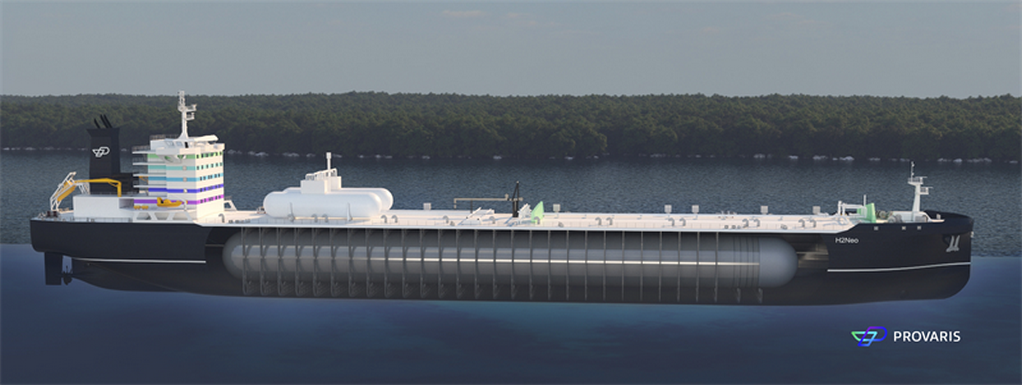ABS signed a memorandum of understanding (MoU) with the Korea Hydrogen Industry Association (KHIA) and the University of Ulsan, Foundation for Industry Cooperation (UOUFIC) to develop a small, 40-seat vessel for tourism, equipped with electric propulsion using a 350-kW hydrogen fuel cell.
The zero-emission vessel qualifies as one of the research, development and demonstration (RD&D) projects associated with Korea’s national hydrogen strategy.
“ABS is proud to explore new technologies and work together on innovative projects with knowledgeable stakeholders such as KHIA and the University of Ulsan. We look forward to supporting this hydrogen vessel project with our deep technical knowledge and regulatory expertise to enhance the safety of the maritime industry and bring about a smooth transition to clean energy,” said Vassilios Kroustallis, ABS Senior Vice President, Global Business Development.
“KHIA is very happy to commence this agreement with ABS and the University of Ulsan for the development of hydrogen ships in the future. We look forward to cooperating with ABS and University of Ulsan in various fields,” said Donghui Lee, Chairman KHIA.
Ock Taeck Lim, Professor at the University of Ulsan, said the MOU with ABS and KHIA will provide an opportunity to explore differentiated technologies in the fields of hydrogen and shipbuilding.
ABS provides guidance for the implementation and the transportation of hydrogen as a marine fuel as part of the global energy transition. Learn more here.
Source: ABS.
Tags: ABS, KHIA, UOUFIC, Zero Emission



Recent Posts
ClassNK Advocates Speed Gap Monitoring to Optimize Fuel Efficiency in Heavy Weather
Wärtsilä’s retrofit package for the Corsica Linea ferry Pascal Paoli has resulted in fuel savings of up to 22 percent Corsica Linea
COSCO Shipping Names Second Methanol Dual-Fuel Containership in Yangzhou
Sallaum Lines Takes Delivery of LNG-Powered Car Carrier Ahead of Schedule
UK Government Allocates £30 Million to Advance Clean Maritime Technologies and Support Coastal Communities
Final Indigenous Pollution Control Vessel ‘Samudra Prachet’ Launched by Goa Shipyard for Indian Coast Guard
TSUNEISHI Launches World’s First Methanol Dual-Fuel KAMSARMAX Bulk Carrier in the Philippines
Grimaldi Group Launches Ammonia-Ready Car Carrier Grande Shanghai in China